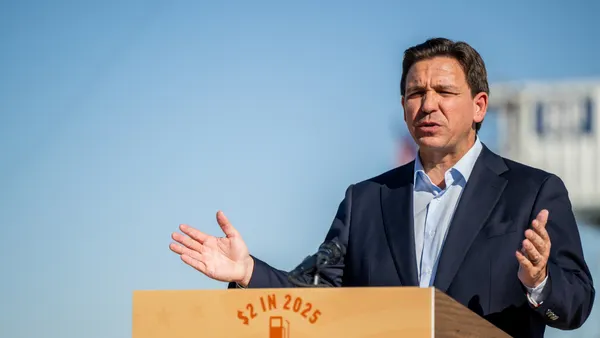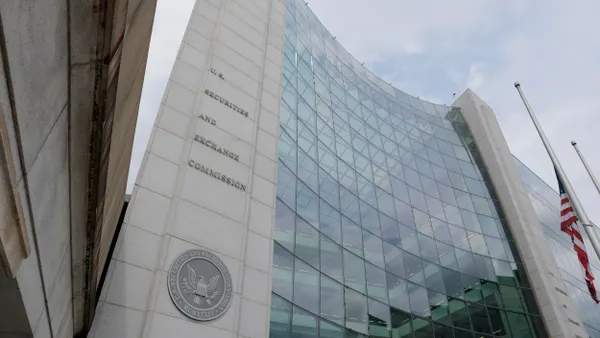Dive Brief:
-
While some industries have rebounded faster than others from the impact of the pandemic, most CFOs expect a slow to moderate recovery. Over half don't expect their companies to reach pre-crisis operating levels until 2021, with nearly 20% expecting 2022 or later, according to Deloitte's newest COVID-19 CFO Pulse Survey of 118 Fortune 500 CFOs.
-
"With a substantial reopening of the economy underway, CFOs are largely optimistic about their companies' ability to operate effectively, safely, and profitably," Greg Dickinson, managing director of the North American CFO Signals Survey, wrote in an email to CFO Dive. "But they indicate significant doubts about how quickly their revenue and the broader U.S. economy will return to pre-pandemic levels."
-
Around 20% of CFO respondents, all of whom lead large corporations, said they are already at or above pre-crisis operating levels, and only another 12% expect to reach this milestone by the end of 2020. "That speaks to the confidence CFOs have in their companies' ability to adapt, part of which comes from being a very large company with ways to shift resources from one place to another," Dickinson said.
Dive Insight:
"The overall message is that, having gone through a substantial reopening of the U.S. economy, companies are pretty optimistic about the things they can control," Dickinson told CFO Dive in an interview Monday. "When you ask them how confident they are they can keep their employees safe and manage in-person transactions, and be able do so in resurgence, it’s surprising how optimistic they are, because that’s a lot to manage."

Operating levels remain stagnant. Nearly three in four CFOs (72%) say they are currently operating at or above 80% capacity, which is essentially even with the 73% who said so in Deloitte’s April survey.
The proportion of CFOs who say none of their workers are working at less than half capacity rose substantially from 26% in April to 37% now, but one-third again say at least 20% are at less than half capacity. CFOs in the retail, wholesale and services spaces indicated the strongest challenges.
CFOs are mostly optimistic about their ability to operate effectively, safely, and profitably as the U.S. economy continues reopening, even as cases tick upwards in 26 states.
They are least optimistic about the ability of the US economy and their companies to return to pre-crisis performance levels, and they are mixed when it comes to staffing and liquidity. Only 30% of respondents expect a return to normalcy by the end of the calendar year. 50% said 2021, and 20% expect a return in 2022 or later.
"It's pretty split and industry-dependent," Dickinson said of the divide in attitudes. "Most folks in retail, wholesale and hospitality don't expect normalcy until the end of 2021 or 2022. They're just trying to figure out how to be profitable now, and later, if there’s a resurgence."
Inflated equities are also part of the story. Nearly 70% of CFOs believe US equity markets are overvalued, and only 6% say they are undervalued. Additionally, demand for government relief is top of mind; 55% of CFOs say U.S. Congress should provide further assistance to workers, families, and small businesses, and 42% believe the Fed should do more to bolster liquidity.
Diversification of business lines has aided in CFOs' confidence levels. "You wouldn’t see much of that in a survey of mid-market company CFOs. These CFOs have very high confidence in their liquidity, and are not worried about being short on money in their own operations," Dickinson said.
On the other hand, mid-market companies have been severely impacted, and often can't get debt through banks, which may make their CFOs more nervous.
Dickinson hopes CFOs take away two major points from the study. "Number one is liquidity," he said. "If you don't have money, you can't pay anyone, and then you go out of business."
Number two is to look out for your people, and protect them however you can. "But CFOs know this already," he said. "They're on the front lines of this thing."













